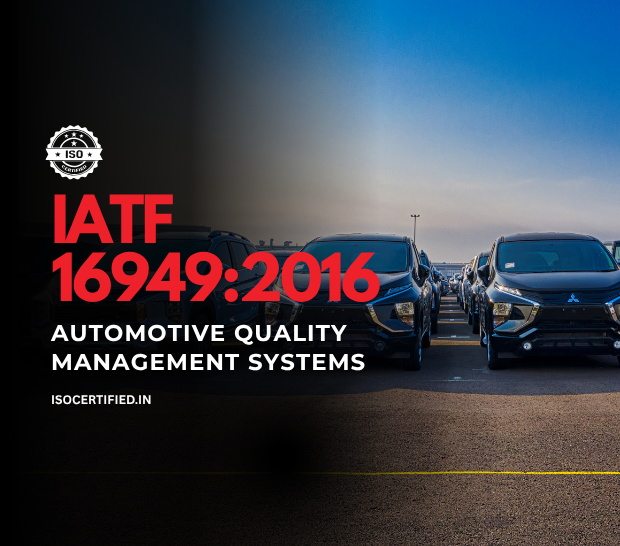- Globally Recognized Certification
IATF 16949:2016 - Automotive Quality Management Systems
IATF 16949:2016 is the globally recognized automotive quality management standard that defines requirements for defect prevention, waste reduction, and continuous improvement throughout the automotive supply chain.
Request A Free Quote
What is IATF 16949:2016 Certification?
IATF 16949:2016 is the International Automotive Task Force standard that integrates ISO 9001 with automotive-specific requirements developed by major vehicle manufacturers including GM, Ford, Volkswagen, and others. It establishes comprehensive quality management practices emphasizing zero-defect manufacturing, robust product design, advanced quality planning (APQP), production part approval processes (PPAP), and stringent supplier management. This certification is mandatory for organizations supplying production parts, service parts, or accessories to original equipment manufacturers (OEMs) in the automotive industry.
The standard requires rigorous process control, measurement system analysis, failure mode effects analysis (FMEA), statistical process control, and continuous improvement methodologies to eliminate variation and ensure consistent product quality. Organizations certified under IATF 16949:2016 demonstrate their capability to meet demanding automotive quality standards, achieve OEM supplier approval status, and participate in global automotive supply chains where quality, reliability, and on-time delivery are non-negotiable requirements.

- Benifits
Key Benefits of IATF 16949:2016 Certification
IATF 16949:2016 ensures OEM approval, reduces defects, improves supply chain integration, and drives operational efficiency.
OEM Supplier Approval
Mandatory certification for automotive suppliers unlocks opportunities with major vehicle manufacturers and meets supply chain entry requirements.
Reduced Defect Rates
Advanced quality planning and prevention-based approaches minimize manufacturing defects, warranty claims, and costly product recalls.
Enhanced Supply Chain
Standardized quality requirements across suppliers improve collaboration, communication, and integration throughout the automotive ecosystem.
Improved Operational Efficiency
Lean manufacturing principles and waste reduction methodologies lower production costs, optimize resources, and increase profit margins.
- Standard Process
Your Path to ISO Certification
Four straightforward steps to achieve ISO certification: consultation, documentation, payment, and certificate delivery—all managed remotely for your convenience.
Free Consultation
Connect with our ISO experts to discuss your certification needs and requirements.
E-mail Documents
Submit your organization's documents and information securely via email.
Make Payment Online
Complete your payment conveniently through our secure online payment gateway.
Get ISO Certificate
Receive your internationally recognized ISO certification upon successful audit completion.
- Which Industries?
Who Needs This
Organizations manufacturing automotive parts, components, or assemblies for original equipment manufacturers require this mandatory certification.
Tier 1 & 2 Suppliers
Automotive Service Parts
Automotive Parts Manufacturing
Component Assembly Operations
- Ongoing Requirements
Compliance & Maintenance
Post-certification, organizations must fulfill ongoing requirements including annual surveillance audits, internal reviews, and recertification to maintain their ISO certificate validity.
Annual Surveillance Audits
Certification bodies conduct yearly audits to verify continuous compliance with ISO standards and ensure your management system remains effective and up-to-date.
Recertification Every 3 Years
Complete recertification audit required every three years to renew your ISO certificate and demonstrate sustained commitment to quality management excellence.
Internal Audits & Reviews
Regular internal audits and management reviews must be conducted to monitor performance, identify improvements, and prepare for external certification audits.
Documentation & Training Updates
Maintain current documentation, update procedures for process changes, and provide ongoing training to employees on ISO requirements and their responsibilities.
